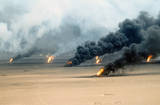|
|
 |
|
SITE
TO BE UPDATED APRIL 2023 - PLEASE STAND BY!
A seasoned editor, writer and producer — with a proven record in project and personnel management — Marc Lallanilla
brings a wealth of experience to print, digital and mobile media.
Based
in the New York City area, his 20+ years of professional experience includes reporting breaking news, writing original
stories, editing news and feature articles, producing multimedia content and environmental and design project management.
|
 |
|
Resume
Freelance Editor & Writer 2000 - Present Editing and writing health, science, environmental affairs, business,
travel, architecture and design topics. Clients have included the Los Angeles Times, NYU Langone Medical Center,
TheWeek.com, Johns Hopkins Medicine, Memorial Sloan-Kettering Cancer Center, Weill Cornell Medicine, Frommer's Travel Guides and
others.
Syneos Health Communications 2020 - 2021 Senior Editor: Editing and fact-checking pharmaceutical websites,
ad layouts and white papers using AMA and brand/client style. A+E Networks 2017 - 2023 Assignments Editor:
Managing a team of writers to create SEO-optimized content for History.com and Biography.com. Everyday Health
2014 - 2016 Managing Editor: Recruiting and managing a team of writers and medical reviewers to create SEO-optimized health
and pharmaceutical content. LiveScience.com 2012 - 2014 Editor/Writer: Editing and writing online science,
tech and environmental articles. About.com 2006 - 2008 Health Editor: Managing freelance writers, producing
special content, and editing articles, photo galleries and online video. ABC News 2003 - 2006 Producer, Health:
Writing, editing and producing articles covering science, health, politics, design, business and the environment for the online
division of ABC News. Teleflora 2001 - 2003 Assistant Editor: Editing and writing original stories for a
monthly design magazine; managing freelancer contributions. ACADEMICSNew York UniversityMaster's
degree candidate: Science, Health and Environmental Reporting Program (SHERP) University of California at Berkeley
Master's
degree: Environmental Planning Beatrix Farrand Scholarship award University of Texas at Austin
Bachelor's
degree: Environmental Sciences, Architecture SKILLS AND PUBLICATIONS
- SEMrush, Moz, Ubersuggest, Google Search Console, other SEO tools
- AP and AMA style editing
- HTML, Wrike, WordPress, CMS systems
- MS Office (Word, Excel, PowerPoint)
- Adobe Acrobat, AutoCAD
- Published author: Frommer's Travel Guides: 500 Adrenaline Adventures and New York State
|
 |
|
|
|
 |
|
Featured Story
Bombed: The Effects of War
on the Environment

|
| (PhotoDisc) |
By MARC LALLANILLA
The natural environment has been a strategic element of war since the first rock was thrown by the first
cave dweller. The armies of ancient Rome and Assyria, to ensure the total capitulation of their enemies, reportedly sowed
salt into the cropland of their foes, making the soil useless for farming -- an early use of military herbicide, and one of
most devastating environmental effects of war.
But history also provides lessons in eco-sensitive warfare. The Bible, in Deuteronomy 20:19, stays the hand of the warrior
to minimize war's impact on nature and men alike:
When you besiege a city a long time, to make war against it in order to capture it, you shall not destroy its trees
by swinging an axe against them; for you may eat from them, and you shall not cut them down. For is the tree of the field
a man, that it should be besieged by you?
War is waged differently today, of course, and has widespread environmental
impacts that last far longer. "The technology has changed, and the potential effects of the technology are very different,"
said Carl Bruch, co-director of international programs at the Environmental Law Institute in Washington, D.C.
Bruch, who is also the co-author of The Environmental Consequences of War: Legal, Economic, and
Scientific Perspectives, notes that modern chemical, biological and nuclear warfare has the potential
to wreak unprecedented environmental havoc that, fortunately, we haven't seen -- yet. "This is a great threat," said Bruch.
But in some cases, precision weapons and other technological advances can
shield the environment by targeting key facilities, leaving other areas relatively unscathed. "You could make the argument
that these weapons have the ability to minimize collateral damage," said Geoffrey Dabelko, director of the Environmental Change and Security Program at the Woodrow Wilson Center for Scholars in Washington, D.C.
For the full story, go to Treehugger.com
|
 |
|
|
|
|
|
|
|
 |

